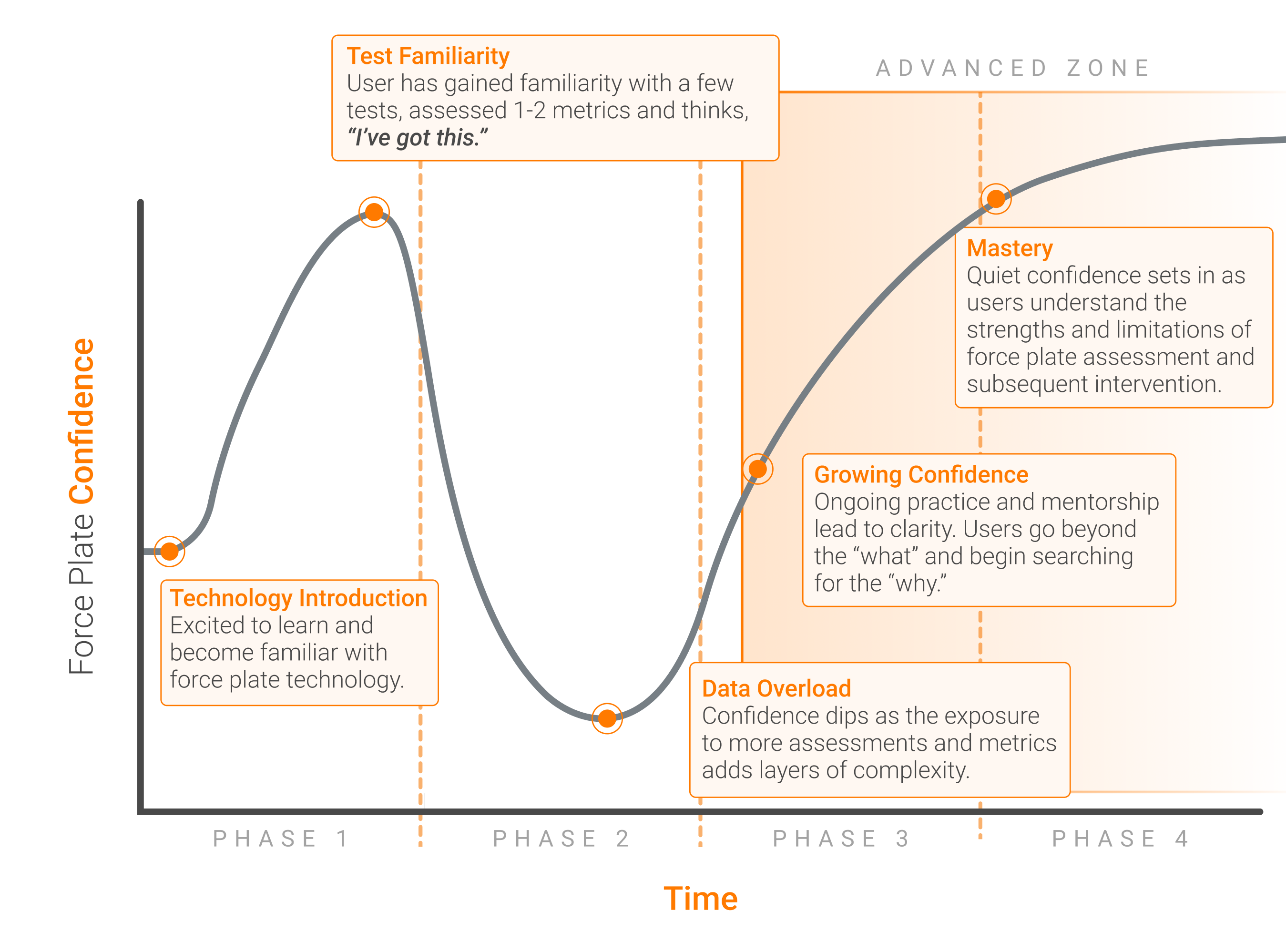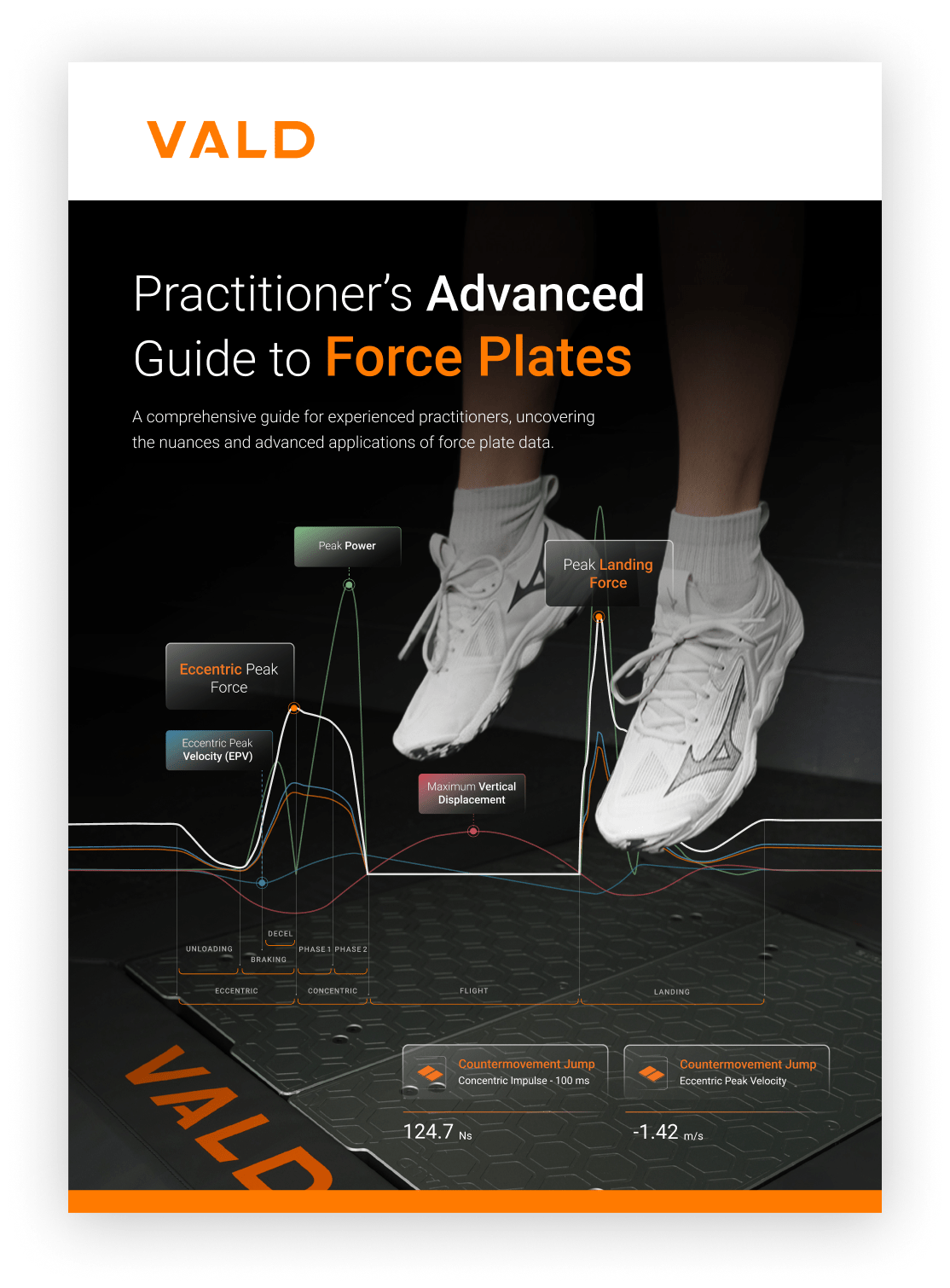FREE eBook
Practitioner's Advanced Guide
Practitioner's Advanced Guide
to Force Plates
A comprehensive guide for experienced practitioners, uncovering the nuances and advanced applications of force plate data.

Digging beneath the surface to uncover force plate insights for the advanced practitioner.
Force plates have become a defining technology of modern performance and rehabilitation, reflecting a commitment to best practice and dedication to human performance.
This advanced guide distills insights from top practitioners and the minds behind elite-level technology to elevate how force plates are applied in practice.
Your advanced force plate
questions, answered.
- Q: What are the common pitfalls preventing practitioners from becoming advanced?
- Q: What considerations are necessary for asymmetrical test results?
- Q: How do advanced practitioners analyze force plate assessment waveforms?
- Q: What considerations are necessary for time-constrained metrics?
- Q: How to use force plates to differentiate between higher and lower performing athletes?
... and much, much more.

By dissecting the phases of movement, identifying hidden inefficiencies and tracking neuromuscular readiness over time, they transform complex force-time data into actionable strategies.

Practitioners should look to quantify links between force platform-derived measures and key aspects of the performance outcome they are ultimately trying to improve. Those measures with the strongest links can then be prioritized.

Using wave form analysis to pinpoint the exact phases of movement where issues arise or asymmetries occur. This level of detail moves beyond the numbers, revealing the signatures that either cause performance or require targeted intervention.

The advanced users is not defined by years of use or study but by an interest in gaining deeper athlete or patient insights, in maximizing the value of assessments and a willingness to engage with the complexity of 'comprehensive kinetic analysis'.

By integrating waveform analysis with phase-specific metrics, we can pinpoint exactly where in the movement pattern an athlete may be underloading, overloading or relying on altered mechanics.

To accurately measure each quality, it is critical to consider each aspect of the assessment process: the task you choose, the instruction of the task and the metric selection and calculation.
Copyright VALD. All rights reserved. | Privacy Policy
